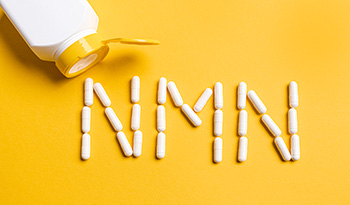Top Health Risks for Men

Worldwide, it is well established that men will die at a younger age than their female counterparts. In some countries, the gap can be a close as a year while in others, like Russia for example, men will die almost 12 years before their female peers. Taking positive healthy actions is a step in the right direction to optimize men’s health and minimize this discrepancy.
There may be a few things men can do to help increase their life expectancy. However, before we try and find the solution, we need to understand the top causes of death amongst men. Once we understand that, we can begin making changes.
Heart Disease and Strokes
Heart disease and strokes are leading threats to men’s health in the United States, Europe, and Asia. Heart attacks occur when a main artery in the heart muscle becomes blocked. This reduced blood flow and oxygen causes the affected part of the heart to become damaged, which may cause the heart to stop pumping or may lead to a deadly heart rhythm.
Strokes occur in the brain when blood flow to healthy brain tissue is also blocked. Eighty percent of strokes are caused by a blood clot in an artery while 20 percent of strokes are due to a ruptured artery, resulting in a bleed in the brain. If not fatal, this can lead to inflammation and certain brain cells dying, which may result in arm and leg weakness as well as speech deficits.
Unfortunately, as more countries adopt the Western lifestyle in place of their ancestral diets, heart disease and strokes will continue to progress. In the United States, alone, deaths due to heart and vascular disease unnecessarily kill more than 1 million people every year. Worldwide, more than 17 million die yearly.
High blood pressure is one of the leading risk factors for heart disease and strokes—more than 1 billion of the world’s 7.6 billion people have high blood pressure.
There is also some evidence that gut bacteria may increase risk for heart disease and stroke. Scientists have shown that when certain gut bacteria digest foods, such as red meat, eggs, dairy and other animal products high in L-carnitine and choline, they make a chemical called TMA (trimethylamine). The liver then transforms TMA into TMAO (trimethylene N-oxide), which causes oxidative damage to blood vessels. It is believed that optimizing gut microbiome health with a diverse-foods diet can help reduce excess TMA from being generated. It is possible that doctors may recommend prebiotics and probiotics in the near future as a method to help prevent vascular disease.
Risk Factors for Heart Disease and Strokes
- High Blood Pressure – makes the heart work harder than it's designed to
- Smoking– causes blood vessel damage and promotes clogged arteries
- Diabetes – causes blood vessel oxidative damage
- Obesity – places extra stress on the heart
- Family History of Heart Disease – healthy living can reduce this risk
- High Cholesterol – contributes to clogged arteries
- Poor Diet – especially if low in fruits and vegetables
- Sleep Apnea/Lack of Sleep – puts excess stress on the heart
- Diagonal Earlobe Crease – genetic risk factor
- Male Pattern Baldness – genetic risk factor
Eating Healthy
Choosing the right food to consume is one of the most important ways to prevent heart disease while lowering inflammation in the vascular system. The heart benefits of a Mediterranean diet have been proven by multiple studies. A 2013 study in the New England Journal of Medicine, for instance, concluded, “Among persons at high cardiovascular risk, a Mediterranean diet supplemented with extra-virgin olive oil or nuts reduced the incidence of major cardiovascular events.”.
A diet that includes generous servings of nuts, seeds, coconut oil, green tea, fresh fruits and vegetables plays an important role in overall heart health and helps one get adequate vitamins and minerals. When diet is not adequate, supplements may also be considered.
Supplements taken for a Healthy Heart
- Vitamin B12 or Methyl-Cobalamin (B12) – 1 mg (1,000mcg) daily
- Folic Acid or Methyl-Folate – 800 mcg minimum per day
- Vitamin C – 500 to 1,000 mg once or twice per day
- Vitamin D – 2,000 to 5,000 IU once per day
- Fish Oil or Krill Oil – as directed on the label
- Co-Enzyme Q10 – 50 to 300 mg daily
- Magnesium chelate – 125 to 500 mg daily
Learn more about Natural Remedies for a Healthy Heart.
Lung Cancer
Lung cancer is one of the world’s most common cancers leading to premature death. Tobacco use causes 85 percent of all lung cancers, and pollution and workplace exposure are also big contributors. Worldwide, Hungarians, Armenians, and Macedonians have some of the highest rates of this devastating disease. Those living in other European countries and North Americans are also at heightened risk while those in Africa, Latin America and the Caribbean have some of the lowest rates of lung cancer.
Risk Factors according to the American Cancer Society
- Cigarette and cigar smoking
- Alcohol abuse
- Second-hand smoke exposure
- Asbestos exposure
- Radon gas exposure
- Air pollution, both outdoor and indoor
- Arsenic in drinking water
- Beta-carotene supplement use in smokers
Symptoms of Lung Cancer
- New onset cough
- Coughing up blood
- Shortness of breath
- Fatigue
- Unexplained weight loss
If you are concerned that you may have symptoms of lung cancer, consult with your physician. Most doctors will recommend a chest x-ray. Depending on your risk factors, a CT scan of the chest may also be considered. Those with chronic fungal lung infections can sometimes appear as if they have a lung cancer, so a biopsy is necessary if an abnormality is found.
Diet and Lung Cancer
A 2003 study showed that a diet rich in fruits and vegetables, which has a lot of protecting antioxidants, could reduce lung cancer risk by 25 percent. This likely occurs because antioxidants help protect against toxins. Further, a 2014 meta-analysis study of 8,938 patients showed that diets high in vitamin C (ascorbic acid) were protective against lung cancer. There was a 7 percent reduction in risk for every 100 mg/day of vitamin C consumed. Consumption of vitamins from foods is best but, for some, that may be a challenge. In that case, supplements are considered.
Supplements which may be protective:
- Vitamin C – 500 to 1,000 mg once or twice per day
- Vitamin D – 2,000 to 5,000 IU once per day
- Turmeric – as directed on the label
Pneumonia and Chronic Obstructive Pulmonary Disease (COPD)
Worldwide, tobacco use is a leading risk for developing pneumonia and, even more seriously, chronic obstructive pulmonary disease (COPD), a chronic lung disease caused primarily by tobacco use. Millions are hospitalized each year for its complications. Stopping tobacco use is the main thing a person can do to help prevent premature death from lung infections.
Tobacco use also reduces vitamin C levels in the blood while also allowing toxins to enter into the bloodstream through the lungs.
A 2016 study by Dr. Shin concluded that pine bark extract could be a potential treatment for COPD while a 2017 study showed those with COPD could slow progression when taking pine bark extract.
Other studies have shown that those with COPD who have lower levels of vitamin D in their blood are at increased risk of breathing difficulties.
Supplements which may be protective
- NAC or N-acetyl cysteine – as directed on the label
- Vitamin C – 500 to 1,000 mg once or twice per day
- Vitamin D – 2,000 to 5,000 IU once per day
- Pine Bark Extract – as directed on the label
Colon Cancer
According to the American Cancer Society, colon cancer accounts for 8 percent of all cancer deaths in men and 9 percent of all cancer deaths in women. Worldwide, more than 1.3 million cases of colon cancer occurred in 2016. Fortunately, the majority of cases can be prevented. It is estimated that 70 to 90 percent of colon cancer cases are due to poor diet, according to a 2018 study in Journal of Gastrointestinal Oncology.
A high-fiber diet, rich in generous servings of fruits and vegetables, is crucial to help prevent colon cancer. High-fiber foods help ensure one empties their bowels regularly, which reduces the number of time toxins spend in the colon.
Studies have also shown that a diet heavy in folate, which is found in foliage like green leafy vegetables, can also prevent colon cancer.
Doctors frequently recommend a screening colonoscopy test be done at age 50. Those with a family history of colon cancer in a first-degree relative, such as one’s parents or siblings, may need to undergo colon cancer screening earlier.
Vitamin D and sunlight exposure may help prevent colon cancer. Scientists have shown that those who live in areas with more sunlight have lower rates of colon cancer. Two studies, published in 2005 and 2007, showed that those with more vitamin D in their blood could decrease colon cancer risk by 50 percent. Another study concluded more vitamin D resulted in 60 percent less cancer.
A 2014 study showed that those diagnosed with colon cancer who had higher levels of vitamin D in their blood were less likely to die from the disease than those with lower levels of vitamin D. Similarly, a 2016 study showed stomach cancer was almost five times more common in those with a vitamin D deficiency.
A 2017 study also showed that probiotics, specifically lactobacillus reuteri, could possibly help prevent and treat colon cancer using animal models. More research, however, is needed before this can be recommended as a common approach. The good news is there is no evidence of harm from probiotic usage.
There is a lot of controversy as to whether red meat actually increases the risk of colon cancer. Some argue that those who eat a large amount of red meat simply consume fewer fruits and vegetables, which may explain the perceived increased risk. If possible, selecting grass-fed, hormone-free meat is ideal.
Supplements which may be protective
- Calcium – as directed on the label
- Folic Acid or Methyl-Folate – 800 mcg minimum per day
- Magnesium Chelate – 125 to 500 mg daily
- Prebiotics and Probiotics – as directed on the label
- Garlic – as directed on the label
- Sulforaphane – as directed on the label
- Turmeric – as directed on the label
Alzheimer's Disease
Alzheimer’s disease is a brain disorder that generally affects older adults. The condition was named after Dr. Aloysium “Alois” Alzheimer, a German psychiatrist who in 1906 diagnosed dementia in a woman who had died from a “strange mental illness”. Alzheimer’s disease usually affects those 65 years of age and older, with less than one percent of cases occurring prior to this age. Scientists predict that one in nine people 65 years of age are at risk for this frustrating condition.
Alzheimer’s is believed to be caused by the deposition of a protein in the brain called Amyloid Beta (or Aβ). This Aβ protein creates a type of “scar tissue” in the brain, which results in memory loss and other symptoms common in Alzheimer’s. Preventing Aβ protein from depositing itself may be the answer to both prevent and possibly reverse this horrible disease.
Supplements which may be protective
Vitamins
- Vitamin B1 (Thiamine) – 50 mg once per day
- Vitamin B6 – 20 mg once per day
- Vitamin B12 or Methyl-Cobalamin (B12) – 1 mg (1,000mcg) daily
- Folic Acid or Methyl-Folate – 800 mcg minimum per day
- Vitamin C – 1,000 mg once per day
- Vitamin D – 2,000 to 5,000 IU once per day
- Vitamin K2 – 100 mcg once per day
Minerals
- Zinc Picolinate – 50 mg minimum, once per day
- Magnesium Chelate – 125 to 500 mg daily
Herbs and other Supplements
- Turmeric – 500 mg once to three times per day
- Resveratrol – 100 mg once or twice per day
- Ashwagandha – 500 mg once or twice per day
- Probiotics – 10 to 100 billion units daily
Learn more about Natural Approaches to Alzheimer’s and Dementia
References:
- Accessed August 19, 2018 https://www.scientificamerican.com/article/why-is-life-expectancy-lo
- Accessed August 18, 2018 http://www.who.int/news-room/fact-sheets/detail/cardiovascular-diseases-(cvds)
- Accessed August 19, 2018 http://www.clevelandheartlab.com/blog/the-gut-the-heart-and-tmao/ Heart disease and TMAO production.
- Primary Prevention of Cardiovascular Disease with a Mediterranean Diet Ramón Estruch, M.D., Ph.D., Emilio Ros, M.D., Ph.D., et. Al N Engl J Med 2013; 368:1279-1290April 4, 2013DOI: 10.1056/NEJMoa1200303
- Accessed August 18th, 2018 https://www.wcrf.org/int/cancer-facts-figures/data-specific-cancers/lung-cancer-statistics
- Accessed August 18th, 2018 https://www.cancer.org/cancer/lung-cancer/prevention-and-early-detection/risk-factors.html
- Monaldi Arch Chest Dis. 2003 Jul-Sep;59(3):207-11.
- Accessed August 19, 2018 https://www.nature.com/articles/srep06161 Vitamin C and Lung Cancer risk
- Jin, H., Qiao, F., Wang, Y., Xu, Y., & Shang, Y. (2015). Curcumin inhibits cell proliferation and induces apoptosis of human non-small cell lung cancer cells through the upregulation of miR-192-5p and suppression of PI3K/Akt signaling pathway. Oncology Reports, 34, 2782-2789. https://doi.org/10.3892/or.2015.4258
- J Ethnopharmacol. 2016 Dec 24;194:412-420. doi: 10.1016/j.jep.2016.10.029. Epub 2016 Oct 8.
- Ko J-W, Shin N-R, Park S-H, et al. Pine bark extract (Pycnogenol®) suppresses cigarette smoke-induced fibrotic response via transforming growth factor-β1/Smad family member 2/3 signaling. Laboratory Animal Research. 2017;33(2):76-83. doi:10.5625/lar.2017.33.2.76.
- Pericleous M, Mandair D, Caplin ME. Diet and supplements and their impact on colorectal cancer. Journal of Gastrointestinal Oncology. 2013;4(4):409-423. doi:10.3978/j.issn.2078-6891.2013.003.
- Pericleous M, Mandair D, Caplin ME. Diet and supplements and their impact on colorectal cancer. Journal of Gastrointestinal Oncology. 2013;4(4):409-423. doi:10.3978/j.issn.2078-6891.2013.003.
- Accessed August 19, 2018 https://www.medicalnewstoday.com/articles/319401.php
- Marisol Rivera-Huerta, Vania Lorena Lizárraga-Grimes, Ibrahim Guillermo Castro-Torres, et al., “Functional Effects of Prebiotic Fructans in Colon Cancer and Calcium Metabolism in Animal Models,” BioMed Research International, vol. 2017, Article ID 9758982, 10 pages, 2017. https://doi.org/10.1155/2017/9758982.
- Yeon-Hwa Lee, Na-Young Song, Do-Hee Kim, Hye-Kyung Na and Young-Joon Surh Cancer Res July 1 2017 (77) (13 Supplement) 1250; DOI: 10.1158/1538-7445.AM2017-1250
- National Institute of Aging. Accessed Aug. 27, 2016 https://www.nia.nih.gov/alzheimers/publication/alzheimers-disease-fact-sheet
DISCLAIMER:This Wellness Hub does not intend to provide diagnosis...
















































































 Table of Contents
Table of Contents















